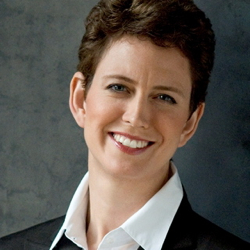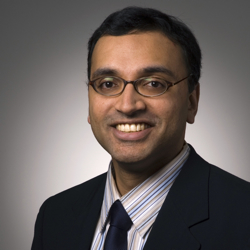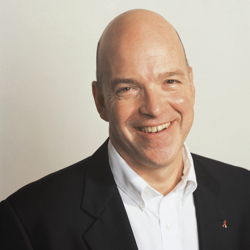What can the American orchestral world learn from major league baseball? The two industries have more in common than you might think–as Elizabeth Scott explores in this post. After years as a media executive for MLB, she joined Lincoln Center last fall in the newly created role of Chief Media & Digital Officer. She joins us in San Francisco on Sunday, May 13 for our free Talking About Audiences event—register today!
 Broadly speaking, audiences today occupy a vastly changed position in the entertainment landscape, compared to only a decade ago. In that relatively short time span, technology has enabled and encouraged audiences to be far more active in their entertainment experiences. Technology has also amplified that activity. Industries that are harnessing rather than hampering this audience empowerment stand to thrive in an ever-fractionalizing entertainment environment. As the character Billy Beane says in the film Moneyball, “Adapt or die.”
Broadly speaking, audiences today occupy a vastly changed position in the entertainment landscape, compared to only a decade ago. In that relatively short time span, technology has enabled and encouraged audiences to be far more active in their entertainment experiences. Technology has also amplified that activity. Industries that are harnessing rather than hampering this audience empowerment stand to thrive in an ever-fractionalizing entertainment environment. As the character Billy Beane says in the film Moneyball, “Adapt or die.”
Them’s fightin’ words. But entertainment consumers wake daily to a participatory, perpetually plugged-in culture of community conversation. Multi-platformed, interactive experiences of entertainment have increasingly become an audience norm. Today’s sport fan, TV reality contest viewer, and YouTube surfer don’t necessarily have more opinions than audiences of earlier eras; they just have more immediate, more numerous and farther-reaching microphones than ever before. (more…)



 Sunil Iyengar directs the Office of Research & Analysis at the National Endowment for the Arts. Since his arrival at the NEA in June 2006, the office has produced over 20 research publications and revised the major federal survey about arts participation. What does this mean for administrators, audiences, and musicians? Hard data on some of the thorny issues we think about everyday.
Sunil Iyengar directs the Office of Research & Analysis at the National Endowment for the Arts. Since his arrival at the NEA in June 2006, the office has produced over 20 research publications and revised the major federal survey about arts participation. What does this mean for administrators, audiences, and musicians? Hard data on some of the thorny issues we think about everyday. How questions are framed inevitably guides and often limits our thinking. I am especially struck by the observation in this blog that “…the core orchestral presentation—a live, on-stage concert—is essentially unchanged over the past 100 years. Will that, can that, remain the case for the next 100 years?”—a “can” that seems to imply an aspiration to retain that format and an overall frame that provokes several questions of my own.
How questions are framed inevitably guides and often limits our thinking. I am especially struck by the observation in this blog that “…the core orchestral presentation—a live, on-stage concert—is essentially unchanged over the past 100 years. Will that, can that, remain the case for the next 100 years?”—a “can” that seems to imply an aspiration to retain that format and an overall frame that provokes several questions of my own.